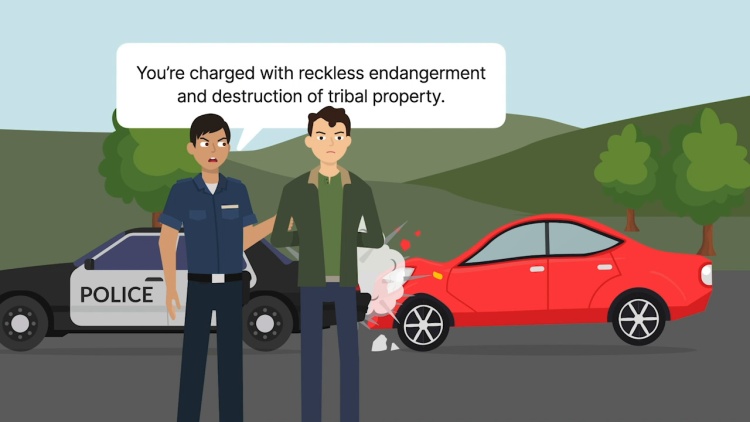Oliphant v. Suquamish Indian Tribe
United States Supreme Court
435 U.S. 191 (1978)
- Written by Lauren Groth, JD
Facts
The Squamish Indian Tribe (Tribe) (defendant) lived on the Port Madison Reservation, a conglomeration of land owned by the Tribe, by individual Indians, and by non-Indians. Under the Law and Order Code, the Tribe had jurisdiction over all crimes occurring on the reservation, whether committed by an Indian or by a non-Indian. Oliphant (plaintiff), a non-Indian resident of the reservation, was arrested and charged with assaulting a tribal police officer and resisting arrest. Oliphant objected to being tried in tribal court, arguing that the tribal court lacked criminal jurisdiction over a non-Indian resident. The Tribe argued that jurisdiction existed pursuant to the Tribe’s inherent sovereign authority. The district court denied Oliphant’s writ for habeas relief, and the ninth circuit affirmed. The United States Supreme Court granted certiorari. The tribal proceedings were stayed pending review.
Rule of Law
Issue
Holding and Reasoning (Rehnquist, J.)
Dissent (Marshall, J.)
What to do next…
Here's why 906,000 law students have relied on our case briefs:
- Written by law professors and practitioners, not other law students. 47,100 briefs, keyed to 996 casebooks. Top-notch customer support.
- The right amount of information, includes the facts, issues, rule of law, holding and reasoning, and any concurrences and dissents.
- Access in your classes, works on your mobile and tablet. Massive library of related video lessons and high quality multiple-choice questions.
- Easy to use, uniform format for every case brief. Written in plain English, not in legalese. Our briefs summarize and simplify; they don’t just repeat the court’s language.







